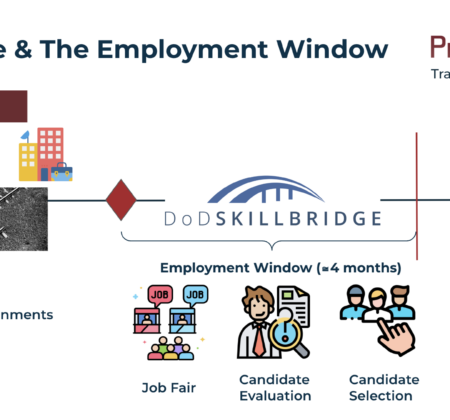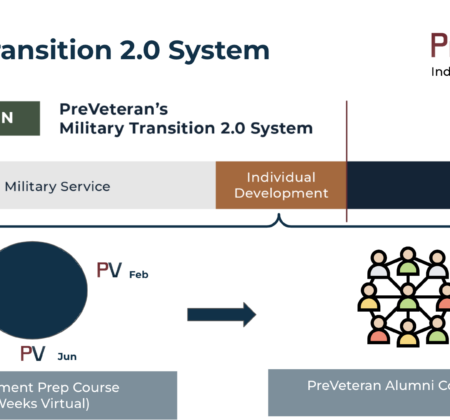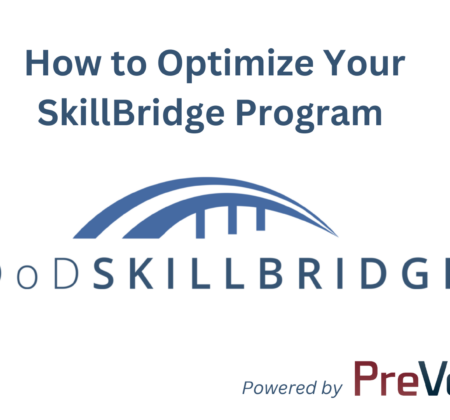After doing hundreds of interviews with military members getting ready for transition to civilian life, a consistent trend emerged from nearly all the interviews. People seem to be approaching their military transition from a “thinking about transition” rather than “taking action” standpoint. What I mean by that is, they do an awful lot of thinking about transition—an awful lot—and somehow believe that thinking about transition gets them closer to creating a successful military transition outcome.
When I ask them for specific actions they’re taking in pursuit of their post-military goals, there is typically a long pause, followed by an explanation of what they plan to do when the time is right. In other words, they give me their ideas rattling around in their heads.
If you are a transitioning military member and resonate with what I’m writing here, don’t feel bad or that you’re doing something wrong—you aren’t. In fact, I remember back to my own preparation for military transition in 2011-2013. If someone had asked me what concrete steps I was taking back then, I have no idea what I would have told them. I probably would have muttered something about creating a small business I could grow while on active duty and then transition to post-military.
However, if I am honest with myself—and with you—I would’ve answered the question in a very similar fashion to the answers I’ve gotten from my interviewees.
Why You’re Adept at Thinking About Transition
So, why do we do this? Well, for one thing, as a population, we are well educated. In fact, if you compare the U.S. Census data versus Military One Source demographic data, military members are more educated than the general public across the board—from high school diplomas to bachelor’s degrees.
On top of being educated, the military has a ton of structure in the way of orders, policies, and manuals that give us a framework to apply reason and logic to tackle challenging problems. Add in military training and planning for real-world combat missions and you can see a military heuristic beginning to take shape.
To add clarity here, let me tell you what a heuristic is from the domain of cognitive neuroscience. A heuristic is a mental shortcut that allows people to solve problems and make judgments quickly and efficiently. In simpler terms, this means your brain’s neural pathways have become accustomed to this way of doing things and in a real sense things you’ve become used to doing become automatic and require no active thought to accomplish.
So, looked at through this lens, it begins making sense that we will leverage that heuristic in our approach to transition as well. We will give it a lot of thought and try to find additional resources to aid us in our decision-making.
One other noteworthy item lends additional credence to the heuristic notion. In hundreds of interviews with soon-to-be transitioning service members, I asked them if they had a sense that someone was going to show them the way. Most, if not all, said yes, they felt this unspoken expectation even though they acknowledged they were not aware where that information came from.
Ah, the power of the mind and impact of routine on an individual’s thinking process!
At PreVeteran and in previous articles, we’ve demonstrated with 30 years of data that military transition outcomes have not changed over that period of time and that we need to approach things differently—you need to self-transform through purposeful action—not thoughts alone.
Let me explain.
Take Purposeful Action with PreVeteran
We discussed it before but it’s worth repeating: You entered a very homogenous military ecosystem as an individual. Your particular service deliberately stripped portions of your individuality away and supplanted a group ethos that made you into a soldier, sailor, airman, or Marine.
There is a 100% certainty that you are departing that military ecosystem and returning as an individual to a much more diverse general population. As a veteran, you are in a small segment (less than 7% and decreasing annually) of the U.S. population. Just framing the challenge that way should indicate that self-transformation is not a “nice to have” but rather a “must.” Those who self-transform will be successful—those who don’t, won’t.
This is where PreVeteran comes in with an individual transition model that enables your self-transformation through guided, purposeful action. You are never going to get anywhere if all you’re doing is thinking about your transition. You need to take action!
Are you seeking employment after you leave the military but aren’t sure where to get started? We’ve got just the thing for you—our Employment Prep Course—which is routinely available throughout the year. It will get you exactly what you need to get out of your head and begin taking purposeful action that’ll help you gain post-military employment success.


